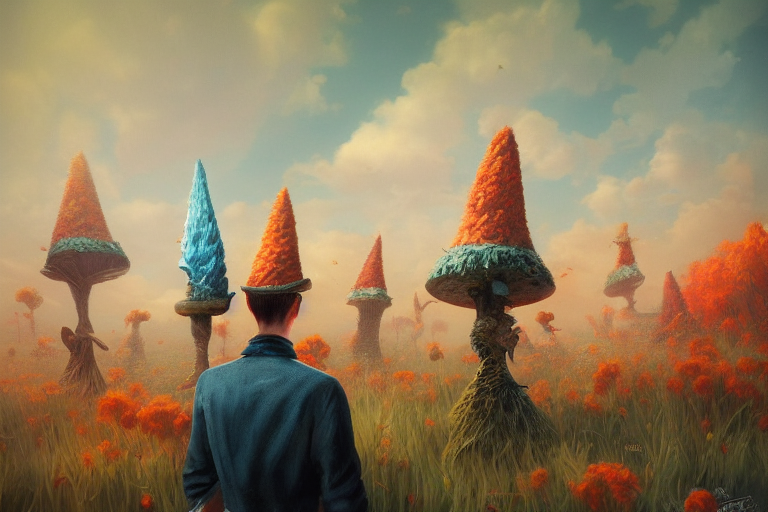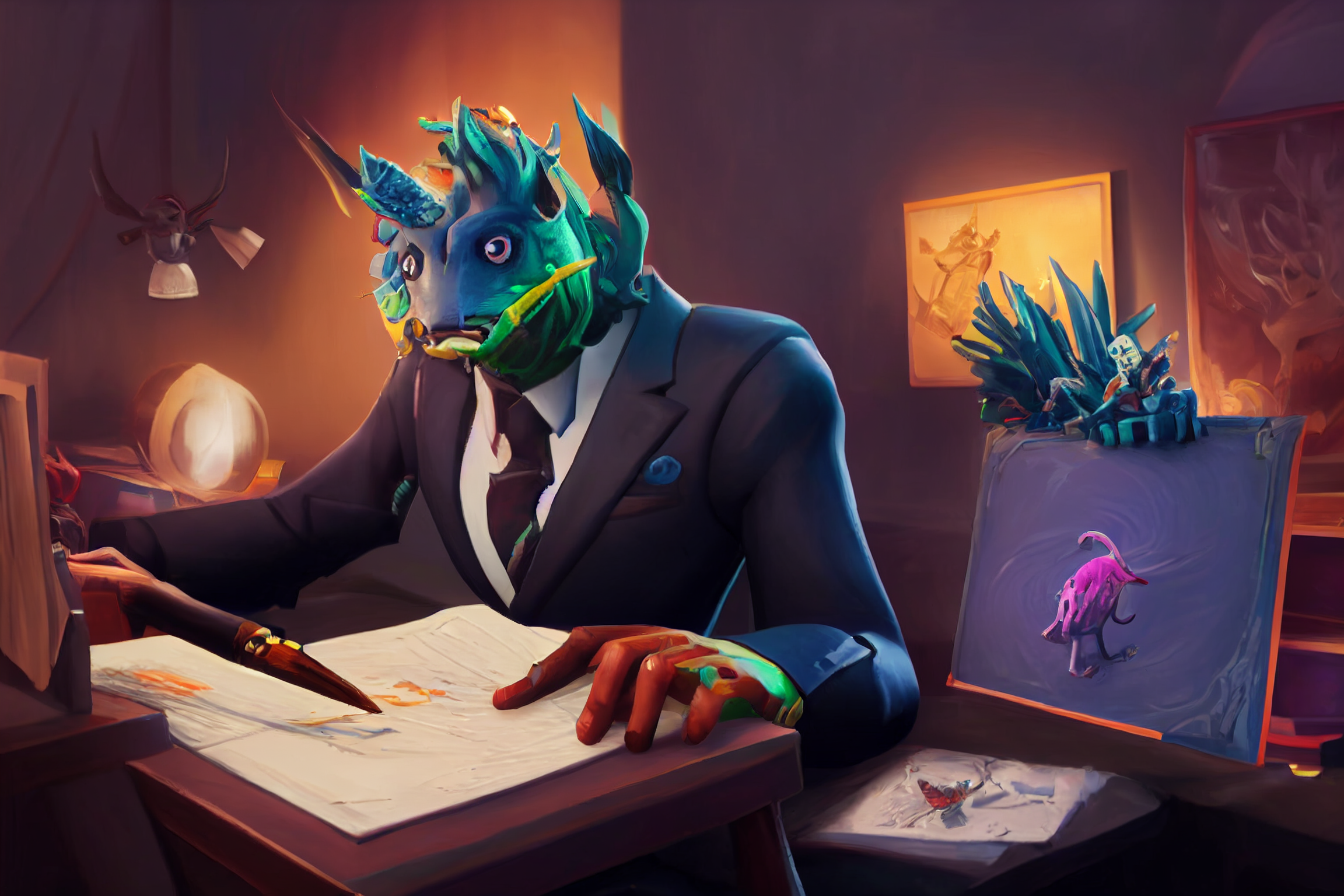Typically, these sorts of articles are written to sell the company's services to you. Or for SEO gains.
You know, when you Google for a specific recipe and it takes you to websites that give you 4 pages of the author's life story first. That kind of thing.
But this article, this article...Is also for the same purpose.
Although, you'll get value first.
With further ado
Outstandly has been involved in the gamedev scene since 2016.
Some of our artists personally — since the early 2000s.
So I figured we'd invite you to our fireplace and share some tips, tricks and myths.
@Image Outstandly near fireplace
Understand Your Needs
If you have a vague idea about the story/setting of your game and game mechanics before contacting the artists — you're already halfway through. For real.
50% of people who contact game artists wouldn't know what they want.
We get requests like this on a daily basis:








Enjoyed these examples?
Feel free to check out our golden selection of the best inquiries that we ever received here:

To get a quote on time and costs, and ensure that artists can create something that suits your game the best — do these:
1. Prepare a list of assets:
It doesn’t have to be a complete list featuring everything, just something to get the ball rolling for a first milestone will be enough. Especially when you’re not sure about the full scope of the content for your game;
2. References.
You need something that will help the artist understand how you imagine your game world.
The setting could be described verbally, by showing some visual references or referencing other games.
Don’t worry if you’re really not sure what art style you want to go for. You can hire a concept artist who will help you design a unique look and feel for your game.
If you're hiring an agency/studio — they usually have the needed staff to make that happen.
3. Show the prototype if you can (placeholder graphics is fine)
Not obligatory but can significantly help to understand the mechanics and other specific needs, especially if it is a unique game mechanics or if it's hard to find a similar game. A napkin sketch would also work.
Have options
Don’t contact just one artist/studio and go all-in with them.
Instead, contact a few that you preliminarily like, and have interviews with them.
By text/voice/video/pigeons. Whatever your kink is.
So you can hire the best of the best.
It is much more than just skills that count:
How fast do they respond?
Do they leave you hanging for days or weeks without a sign of life?
Is their customer service good?
Do you feel confident that they can deliver?
What are their policies for revisions?
Do they have a proven track record of happy customers that you can take a look at (testimonials)?
What are their business processes like?
Is it their full-time job or is it just a hobby?
All those inputs will affect what you get.
For reference about how everything can be handled with care, here is an outline of processes in our own studio:

Start Small
It is generally a good approach when hiring a new contractor in any field.
First, do an initial 'test run' milestone: order one concept art piece, one character model, or anything else that won't require much time and money.
Once done, you would have enough data to decide whether you want to hire this vendor. In addition, you'll get an idea of their business ethics, communication, work processes, and quality of work.
You Get What You Pay For
Be prepared for market prices if you want excellent service, quality, and reliability.
And don't be a weirdo offering "exposure" as a payment method. Unless you're Disney. But even if this is the case — it wouldn't change much. Last time I checked, neither landlords nor supermarkets accept exposure points :(
Rev-share? It might work if you already have a proven track record of shipped, commercially successful projects. It might also work if you're doing gamedev just for fun with friends. However, in other cases, professional artists won't usually accept rev-share.
There is one thing you can try to do though. You can offer a rev-share as an extra part of your monetary payment. If the artist agrees with the offer, it might lower the required investment.
Contract
Crucial.
You can use your own or the artist's contract (the good ones always have one).
Don’t be afraid to negotiate terms and conditions if you don’t like something there.
Make sure that you’re getting full IP ownership on the produced artworks (if you don’t want the opposite, of course) and that the contract describes the process, the scope of the work, and the final result as well as how things will be handled in case of any disputes.
Do Your Own Due Diligence
Received artwork? Use 'Google image' and 'Tineye image' search engines to verify that the artist didn't send you a copy of someone's work or a publicly available sprite.
Note: it still doesn't save you from being scammed as some folks can reverse or slightly alter the image, so your best strategy is to choose the artist/studio with a good reputation and whom you can trust.
And make sure there is a clause in yours/their contract where they guarantee all work to be free of plagiarism and/or any possible copyright infringements.
In this case, they are liable if you get any problems with their artwork in the future.
Unfortunately, this scam has become popular lately, mostly among cheap artists. But keep your chin up! Most of the artists and studios are fantastic and creative people. It is just a tiny number of individuals who are poop.
Finally, here are a few general tips for a better experience:
- Have deadlines?
Ask the artist for an earlier assets release date.
This way, you'll get extra time if anything takes longer than expected.
Artists are not usually good at estimating timelines, especially on projects with a lot of moving parts. So if you got an estimate from them, add some extra time in your head. Like with almost any project in any creative field.
Agencies/studios are usually much better at this. And much more liable.
- Extra exposure for your project
If your contract allows the artists to showcase the produced works in their portfolios and ads, you may want to add a clause that every such exposure should have your project’s name and link to your website. The extra audience never hurts and it’s not a bad thing for an artist as well.
- Tight budget?
Consider checking with your artists if they have some personal works from their portfolio that they can sell you as assets for your game. This way, you can get some content cheaper since they won’t need to create it from scratch.
- Don’t be afraid to ask about different options
Talk to your artist if you’re tight on time/money/resources or are unsure about something. Different games require different approaches, and the artists you work with might have had a client/project with similar challenges and have successfully solved them.
For example, you have many 2D characters with similar anatomy that would require a lot of identical animations. In this case, your artist/animator might suggest animating characters with bone-based animation software like Spine. This approach would save money and time as you won’t need to animate each character separately from scratch. Bone-based animation has its limitations, of course, but this is just an idea that there are alternative options, and you might not be aware of some of them.
- Enjoy
You’re on a fun ride.
Getting stunning visuals will bring so much benefit for increasing your game’s potential success in sales!
And well, even your motivation to continue working on it.
I often hear from gamedevs that once they get rid of placeholder art they get a second breath of motivation seeing that their game actually looks so cool. So yes, while being serious, keep it enjoyable!
Would you fancy a quote for your project?
With no strings attached (what a weird phrase)

